In the Rungan Forest, Save the Orangutan and Borneo Nature Foundation are working to develop the local community and help indigenous peoples obtain the rights to manage the forest. This is done in a race against an industrial development that is clearing the rainforest in a fast pace. The first phase of the project has been very successful and now a new support has been granted, ensuring that the work can continue.
Rungan is a lush area in Central Kalimantan that gets its life force from the grand Rungan River. The area is home to both local communities along the river as well as a large amount of animal and plant species in the surrounding rainforest. It is estimated that about 3,000 wild orangutans live in the canopy of the Rungan forest.
However, Rungan is not a protected area. Therefore, the orangutans in Rungan, as well as up to 80% of the orangutans in Borneo, do not benefit from the protective measures that other areas – such as Mawas – has achieved. And this can be noticed. In recent years, the industrial development has been moving quickly. The plantation and timber industries are clearing the rainforest which leads to orangutans losing their homes and indigenous peoples losing their possibility to earn a living.
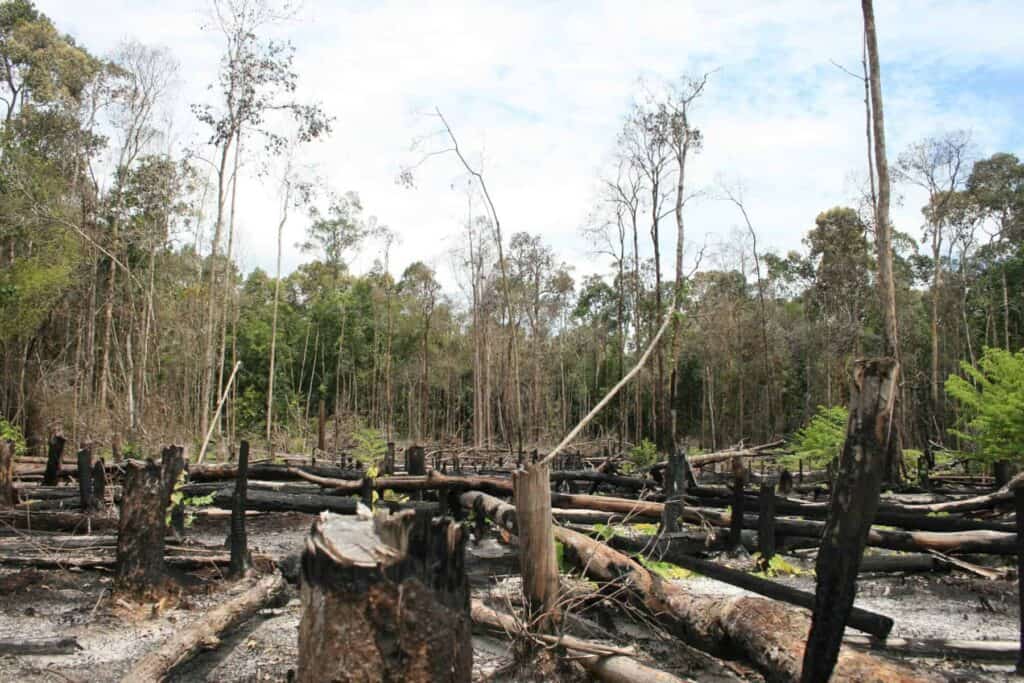
A battle for the rainforest
These were the reasons for Save the Orangutan and Borneo Nature Foundation (BNF) to initiate a project in early 2018 in the local communities of the Rungan forest, to help these communities protect the rainforest. Together, we focused on securing the local communities’ rights to the forest as well as helping them generate sustainable livelihoods.
At the end of 2019, BNF and Save the Orangutan evaluated the first phase of the project.
“The first phase of the project has generated very positive results for the indigenous people in the Rungan forest area,” says Marie Sigvardt, Head of Programs at Save the Orangutan. She has worked closely with the partners in Borneo with developing the project. She adds:
“The locals are now much better prepared to advocate for their cause. At the same time, we have gained greater knowledge about the stakeholders and the dynamics in the area. That knowledge is crucial in order to protect the rainforest and support the indigenous people in the battle for their rights.”
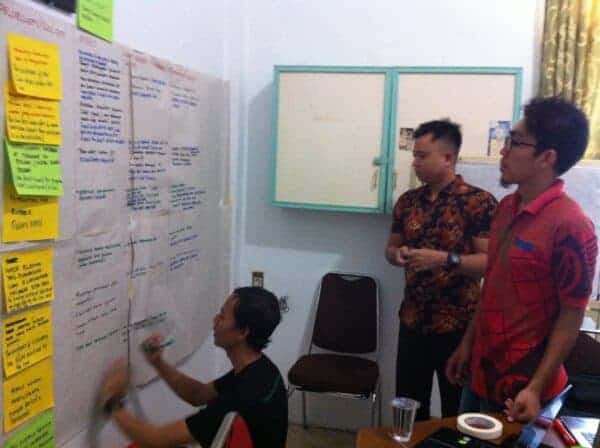
The project is supported by Danish Foreign development aid through CISU (Civil Society in Development) and completed its first phase at the end of 2019. A new support granted by CISU has now made it possible to continue the efforts until the end of 2022.
Indigenous people protect the rainforest
The idea of the project was originally to ensure that the area would not be taken over by companies. Instead, the ambition was for the indigenous people of the Dayak Ngaju tribe to gain rights to the area that they have protected over many generations.
The project supports the Dayak Ngaju tribe in improving living conditions and gaining rights to their land.
“Gaining rights to the forest is, among other things, important in relation to creating sustainable livelihoods for the local communities. When they have legal rights to the forest, they can use it for fishing, eco-tourism, agroforestry and more,” explains Yuliana Nona, coordinator at BNF’s local development team.
Read more about Save the Orangutan’s forest program and how you can support it.
However, the process of gaining rights to the land is long and difficult, while the industrial development in the area is moving quickly. Every day, forest areas are cleared and the battle for rights has become a race against time. Therefore, it quickly became clear that to avoid Rungan being taken over by mining, plantations, and logging activities, it was important to engage all stakeholders in the area and to develop an overall landscape plan. This was to ensure that the local communities’ rights to the area were to be incorporated into the development plans.
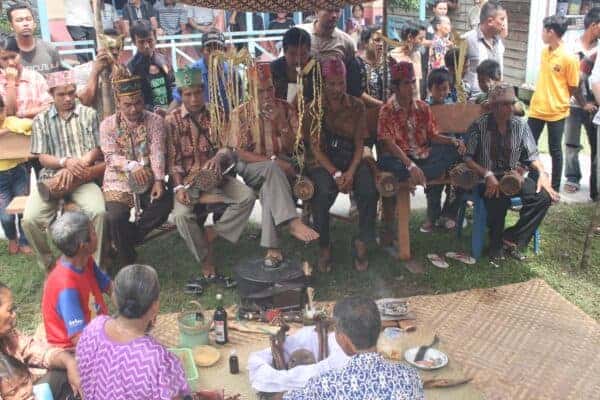
“The voice of the locals has been heard”
During the project period, a number of meetings were therefore held with various ministries and companies. Representatives from the local communities participated in the meetings and advocated for their rights while they also gained insight into the government’s plans for the area.
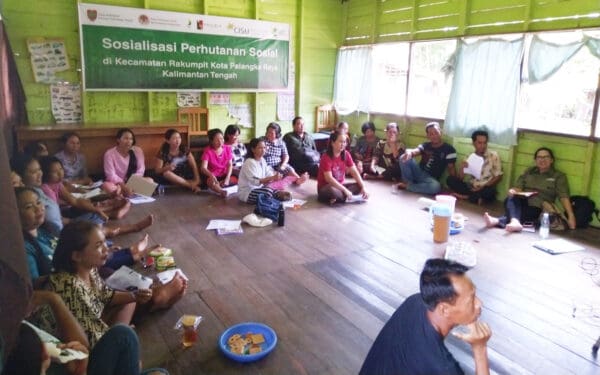
“There were those who did not know about concessions (agreements between public authorities and companies, ed.) in their forest area, who now are informed about it,” says Arso Susetyo, BNF’s local development team staff member. He adds:
“The locals have really become involved in the project and their voices have been heard. They now know what their options are and do not just accept what they get but take a stand on it,” says Arso Susetyo.
One of the local communities has already achieved a noticeable result. They have entered into an agreement with a timber concession to continue to care for their sacred forest, where rare ironwood trees grow in the concession area. While this is a very positive outcome, it is important to continue the work to obtain the indigenous peoples’ rights to the area. It will provide both financial independence as well as better living conditions for the local communities – and a far more sustainable forest where orangutans can live.
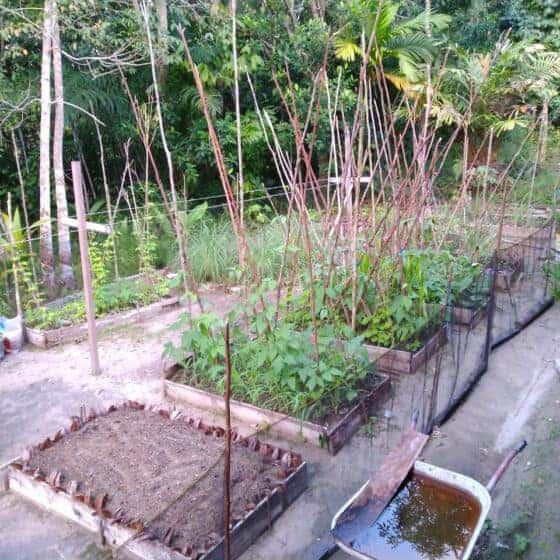
The local communities must be self-sufficient
The second aim of the project was to create new sustainable livelihoods and income-generating activities for the local communities. This in order for them to survive in a rapidly changing landscape without feeling compelled to participate in illegal logging or to work at the plantations that destroy their forest and hinder them to access important natural resources.
One of the aspects the project has been very successful with is establishing small vegetable gardens, which have made several households self-sufficient in vegetables. The villages are situated far from markets and the locals can avoid buying vegetables at a high price when they have their own gardens. Additionally, the local vegetables contribute to a more nutritious diet.
Read more about our collaboration with local communities
Local development protects the wild orangutans
Save the Orangutan’s projects, with the aim to save the rainforest and the wild orangutan populations, focuses largely on supporting sustainable development for the local communities. It is the people who live close to the rainforest that take care of the forests better than anyone else – when they are able to. The staff at BNF agree:
“It is important to work with local communities in areas close to orangutans. It is important to provide the locals with alternatives to illegal logging so that they can be part of the solution and protect the forest. If they do not have an alternative, it is difficult,” explains Yuliana Nona.
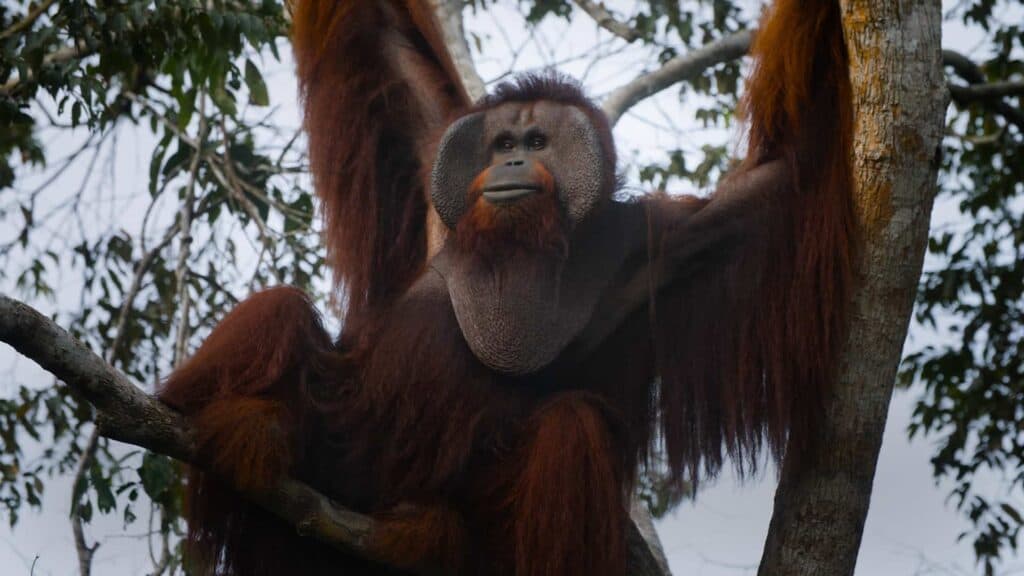
Arso Susetyo adds:
“Many of the locals do not know about the importance of saving the orangutan, so it is necessary to raise awareness about this. At the same time, the locals must be involved in the work to conserve the forest with the knowledge that the effort also raises their own standard of living.”
The first phase of the project was completed at the end of the year. A big thank you to the local communities involved in Rungan, ministries, companies and not to mention our local partner BNF and financial support from CISU for making this important project possible. With the new support granted by CISU, we look forward to continuing the efforts in collaboration with BNF.